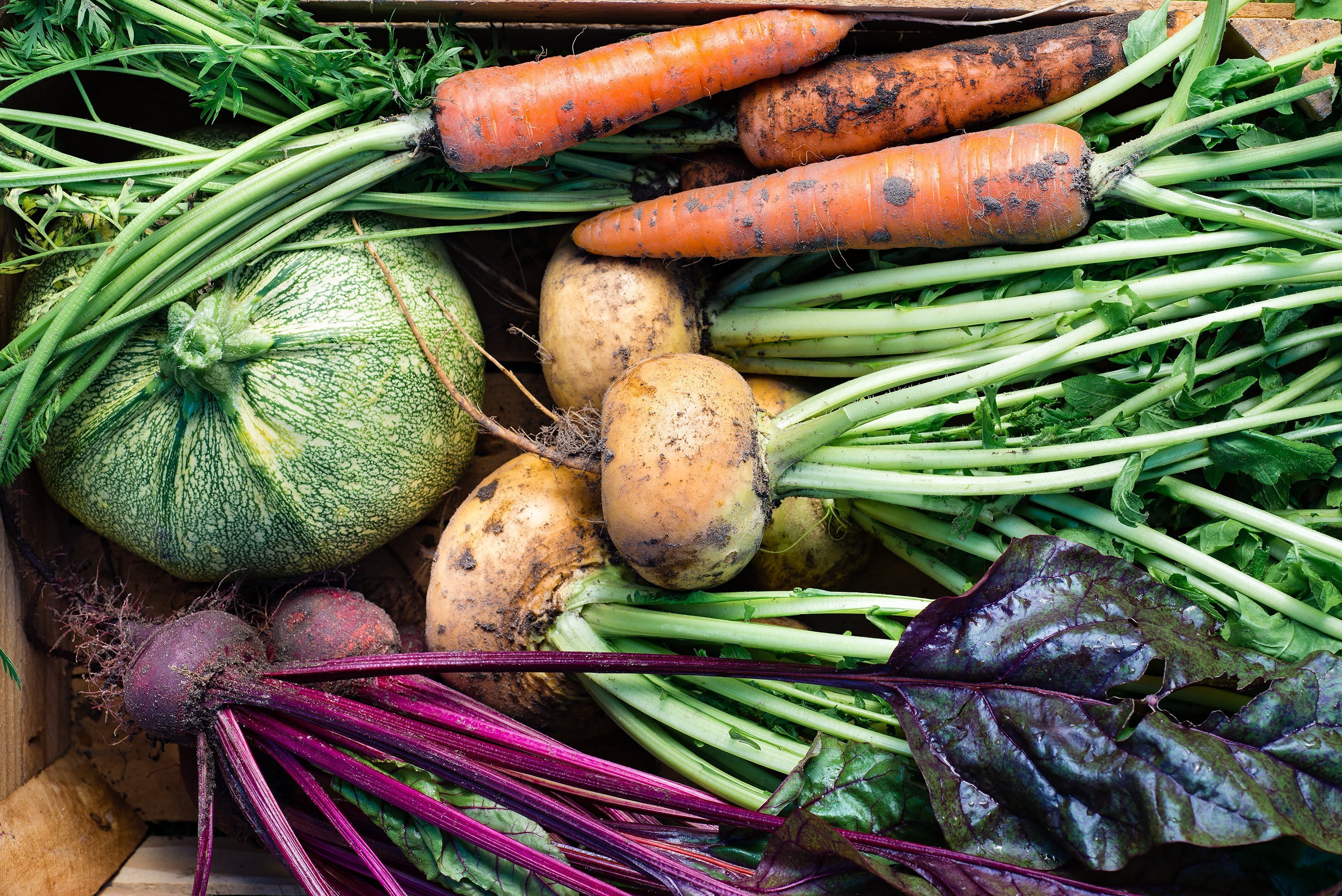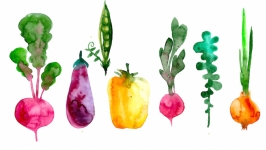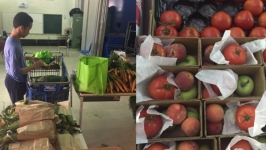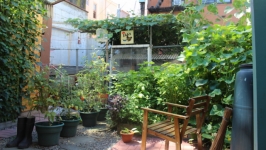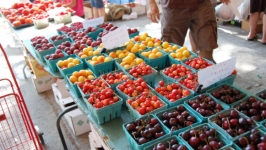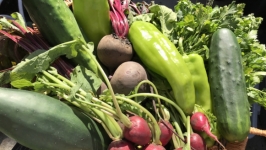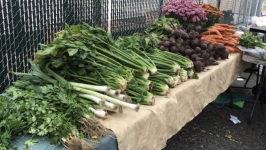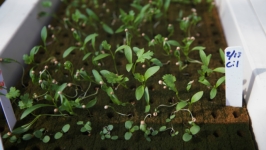Bronx CSA Programs Help You Buy Directly From Farms
Every Thursday afternoon from June through mid-November, the Bainbridge Avenue Garden is transformed from a tranquil oasis to a bustling market. Families, individuals and couples from all walks of life and all across the globe converge on the garden to receive their weekly allotment of fresh fruits and vegetables from the Norwood CSA Food Co-op.
“It’s building community,” said Tanya Greene, co-founder of the Norwood community-supported agriculture (CSA) harvest subscription program. “I wanted to get good, healthy food for my kids and myself, but I also wanted to meet my neighbors.”
As interest in sustainable agriculture and healthy eating grows, CSA programs have expanded over the past few decades across the United States and in the Bronx. This has increased access to fresh food for community groups and organizations, often in low-income neighborhoods.
CSA is a partnership between a farm and community members. Each member of the CSA pays the farmer upfront for the entire season, which provides the funds to purchase seeds, repair equipment and finance the season’s planting. In exchange, members receive a weekly share of fresh produce from the farmer. Unlike a farmers market, however, CSA members do not pick and choose what they will receive in each week’s delivery. Instead, they receive the freshest seasonal fruits and vegetables just harvested by the farmer.
In the early summer this includes leafy greens, tomatoes and corn, while the fall shares feature hearty root vegetables like beets and fennel. “[The CSA] is an agreement to pay a certain amount of money for a certain number of shares each year,” said Greene. “You get a lot of food and a lot of variety.”
The Norwood CSA was one of the first established in the Bronx 15 years ago. Advertising mainly through word-of-mouth and with flyers, its membership grew despite the transient lifestyle of many in the neighborhood. “We’re in one of the most transitional neighborhoods in the city,” Greene said. “It’s the first stop on the immigration train.”
Because many members of the Norwood CSA are immigrants, there is a global membership: The CSA has members from South America, Africa and Europe. “When the fennel comes in, the Italians talk about how to cook it,” said Greene. “It’s a great way to learn the world.”
In the Bronx, the existence of CSAs has dramatically increased since the mid-’90s according to Paula Lukats, program director at Just Food, a nonprofit organization working to expand access to fresh, locally grown produce in urban areas. “When Just Food started in 1995, there was just one CSA in the city,” she said. Just Food facilitates the creation of CSA programs, like the Norwood CSA, by pairing farmers with interested community groups within 250 miles of one another. In the initial stages of CSA, Just Food assists in organizing sign up, distribution and payment.
“Just Food’s role has been to promote the idea of CSAs around the city and let people know that it is an option,” Lukats said. “Once people understand the benefits and the system, there is a lot of excitement around that.”
Just Food has helped to establish dozens of CSAs throughout the city and at least 10 in the Bronx alone, according to their website. In addition to the Norwood CSA, the organization also aided in the creation of the Einstein CSA, based on Yeshiva University’s Bronx campus.
Founded six years ago, its members are primarily students, faculty and doctors affiliated with the university, said Einstein CSA CEO Hannah Monday, though community members outside of the university also participate. “We have our members, and one of the requirements is to volunteer,” said Monday. “People get to know each other and there’s an effort to meet up and exchange recipes—it’s great community building.”
To ensure CSA is accessible for everyone, Just Food works with community groups to set up sliding-scale pricing, fundraisers to allow for discounted shares and the ability to accept SNAP payments to ensure that even families with financial restrictions are able to procure fresh, healthy food.
“Some of the classic elements of CSA are great and key elements,” said Lukats, “but they’re hard to do for folks on a limited income.”
Like Just Food, other organizations are also working to ensure low-income individuals and families have access to healthy food and ingredients in the Bronx. Hunger Free New York City, a branch of the national nonprofit group Hunger Free America, attempts to secure food access for all New Yorkers through legislative change and advocacy. “If you make healthy food available, low-income people will line up for it.” said Joel Berg, CEO of Hunger Free America.
Through their Farm Fresh Program, Hunger Free New York City partners with four CSAs in the greater New York area, including the Bronx CSA, to subsidize shares based on income, accept SNAP payments and provide flexible pickup times for shares. “Our premise was, ‘If you build it they will come,’” said Berg.
“The broad misconception is that low-income people just don’t want healthier food,” said Berg. “But we believe it’s a right for everyone to have it.” As small farms become increasingly difficult to sustain and healthy food becomes difficult to find in urban areas, CSA presents a solution to both problems.
“CSA is a really amazing way for consumers and farmers to connect directly to each other,” said Lukats. “The food world is getting more diverse and more complicated… and CSA is a really great way for that connection to be directly between the community and the farm.”


